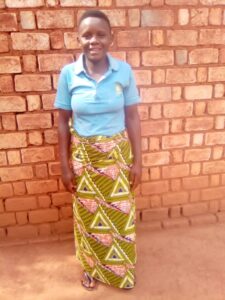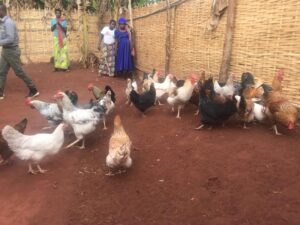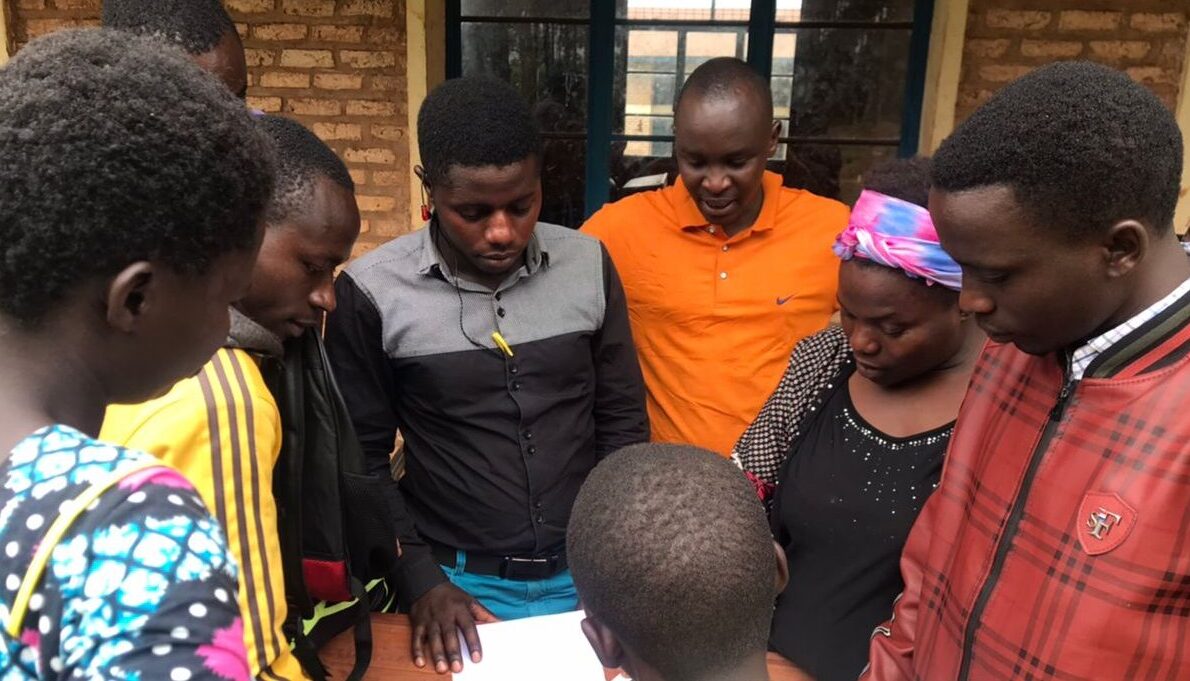Through the self-confidence she gained by participating in the USAID-funded Turi Kumwe project, 27-year old Quelida Ndihokubwayo, from Kinyinya, Burundi, is an emerging leader in her community with aspirations to fight child malnutrition.
Before joining a Village Savings and Loans Association (VSLA) supported by Turi Kumwe, Ndihokubwayo stayed home and focused on domestic tasks like many other women in her community. She did not understand why a woman should do business, which she considered a man’s job.
“With the training sessions on entrepreneurship and business plans, and seeing my female neighbors starting income-generating activities, I realized I should think about my own project,” explains Ndihokubwayo. She submitted a loan request to JJB-Twiyunge Microfinance and wasn’t selected, but she didn’t give up. She shared her idea with her VSLA and obtained a loan of $72 to sell beans on market days. Her business worked well, and she fully repaid her loan.
Now with her own capital of $91, Ndihokubwayo is proud that she was able to contribute to the construction of her family’s house by covering some of the labor fees and buying corrugated metal sheets for the roof. She can also pay for some household needs without asking her husband every time, which raised her standing in the household.
When Turi Kumwe organized a business plan competition to fund innovative projects, Ndihokubwayo, encouraged by her experience trading beans, decided to apply. She teamed up with four other youth and presented a project to raise improved-breed chickens and sell fertilized eggs, chicks, and eggs for consumption. Their project was selected to receive $1,006 in startup funds. So far they have received their first tranche of funding to build a chicken coop and buy 40 chickens. Ndihokubwayo sees this project as a business, and a social enterprise that can contribute to fighting child malnutrition in her community.
“Eggs are full of nutrients and can help fight malnutrition in children, but most people here cannot afford to buy them. If we produce many eggs, and more people in the community buy our chicks to produce more eggs, the price of eggs will become more affordable and families can start consuming them, ”she said.
“As a woman, I used to not speak in public. With the trainings we received, such as leadership and gender equality, and through participation in our savings groups, I slowly got used to it. Now I can talk with others and even express my opinion,” Ndihokubwayo said, who now sees the future with optimism. Ndihokubwayo is becoming a leader in her community, supporting rural women’s empowerment and the wellbeing of children.
To learn more about Turi Kumwe, click here.






